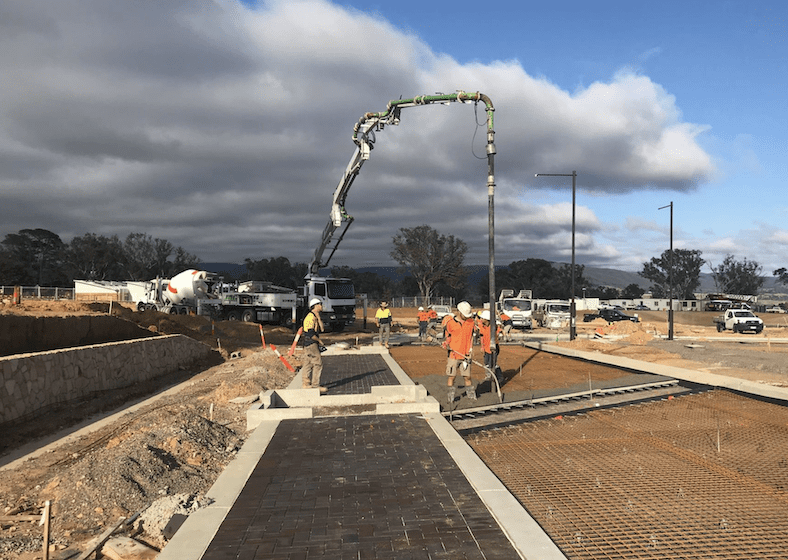Zoran Juraj Sabljak & Tonći Prusac: The 2025 election outcome has given the Croatian community a clear need to advocate for its priorities under a Labor government empowered by a strong majority. For Croatian-Australians, the focus now shifts to ensuring that Labor’s policies translate into tangible benefits: affordable family homes in cultural heartlands, support for ageing parents sacrificing retirement savings, and protections for our festivals, schools, and businesses that bind our community whilst at the same time remaining cautious about socialist governments’ potential overreach. Here are just some of the challenges faced.
Economic Pressures and Family Sacrifices
The Australian Labor Party (ALP) has been re-elected with more support than before. This has put focus on their economic plans, especially as Croatian-Australian families struggle with rising costs of living. Labor promises to make housing more affordable, increase wages, and control inflation—all important issues for Croatian-Australians who value supporting family members across generations.
High rents, slowing wages, and ongoing inflation have put pressure on many households. Older Croatian-Australians often delay retirement to help their children and grandchildren financially. This shows the deep migrant value of sacrifice, where owning property means stability and success. However, younger Croatian-Australians increasingly feel they’ll never own homes, which risks breaking important cultural traditions tied to financial security.
Other Labor policies—like energy bill rebates, childcare subsidies, and higher minimum wages—could help households save money. But big challenges remain: skilled Croatian-Australians face stagnant wages despite Labor’s reforms, while small businesses (common in the community) struggle with high operating costs.
Socialism
For Croatian-Australians, the term “socialism” evokes not abstract ideology but personal trauma: the suppression of cultural identity, forced assimilation, and the severing of family ties under Yugoslavia’s regime.
This history explains the community’s cautious reception of policies that expand state authority, even under Australia’s moderate Labor government. While Labor’s social democratic agenda bears no resemblance to Yugoslav-style hardline socialism, older Croatians remain very much attuned to the risks of bureaucratic overreach.
The Croatian community in Australia, like many post-war migrant groups, faces a paradox of assimilation: as they integrate into broader society, their access to cultural preservation funding and institutional support diminishes.
This trend reflects a broader policy shift prioritising newer migrant arrivals, often at the expense of older communities. The recent decision by Macquarie University to discontinue Croatian language a program running for over 40 years—sparked outrage, with petitions arguing that the language remains vital for “multicultural activities and industry translations”.
Multiculturalism
The Labor Party’s renewed focus on multiculturalism under Albanese’s government has not reversed this decline in support. For Croatian-Australians, this neglect evokes historical tensions. In the 1960s–70s, Labor figures like Gough Whitlam openly stigmatised Croatians as “fascists,” weaponising Cold War politics to delegitimise their identity.
As a result of this Croatian migrants, many of whom were anti-communist and Catholic, became a political targets. Whitlam’s remarks contributed to decades of stigmatisation, with the Labor Party framing Croatian nationalism as inherently extremist, despite limited evidence of widespread radicalism within the community. Even half a century later, memories of that tumultuous period remain vivid within the Croatian community.
Australia’s multicultural success hinges on balancing support for new and old migrant communities. The decline of Croatian-language education and cultural funding signals a critical failure by the Labor Party to honour the contributions of post-war Europeans.
Under Labor’s watch, inadequate intervention threatens the rich tapestry of Croatian-Australian life—from folklore festivals to football clubs—which now risks fading into obscurity, a casualty of the party’s assimilation policies and misguided political priorities.
Housing
As mentioned above, Labor’s election success will depend on quickly delivering more housing and ensuring their cost-of-living policies actually help multicultural working-class families. In our case, the Croatian-Australians living in Australia.
Soaring property prices, now averaging well over $1 million in cities like Sydney and Melbourne, coupled with rising interest rates, have made mortgages unattainable for many. Labor’s $10 billion Housing Australia Future Fund aims to build 30,000 social and affordable homes over five years.
Government housing schemes
The “Help to Buy” scheme could also assist first-home buyers. These plans might slowly help Croatian-Australians access housing, but many doubt whether building more homes will actually lower rents or prices quickly.
Older community members already helping adult children may not see immediate relief.
Speaking of which, according to a recent Eurostat data, the average age at which young Croatian adults back in Croatia are leaving their parental home is 31.8 years, which is ranked #1 the list of European nations.
This trend reflects a mix of cultural traditions and the strong family ties that define life in Croatia, but also the economic pressures that average young Croats are faced with that are similar to the ones here in Australia in times of global economic and political uncertainty.
Regarding the situation back Down Under, without fast, targeted help, the Croatian community members’ tradition of self-reliance might be under threat and kids could be forced to stay at home longer than originally planned.
Then again, it could have its positives.
Remember that old saying of ‘it takes a village to raise a child’? Well, due to forced circumstances, Baba and Dida might just end up babysitting their grandchildren at home, while the parents are forced to work two (or more) jobs – just to get ahead in life – and then come back home to the kids…. and to their own parents!
Just like in Croatia…

Going forward, what’s next?
Croatian-Australian families (and individuals), by and large, form part of the majority working middle class in Australia and are often located in electorates that can be considered ‘safe Labor’ seats. Generally speaking, in the working class regions, predominately in the western suburbs of the bigger cities.
During an election campaign, his can be viewed as a major disadvantage, compared to those who find themselves in marginal seats where politicians are very active to ‘promise the world’, as they fight with pledges and pre-election ‘vote buying’ promises to garner support at the ballot boxes.
Lessons to be learnt
The lesson here is for Croatian Australian voters – but also for the general population out there – is to endeavour to convert all their ‘safe seats’ into marginals at the next election, which will translate to improved infrastructure funding, as well as funding specifically for local community projects and organisations that will benefit their own individual circumstances.
Interestingly, the only funding that was pledged to any Croatian organisation during the recent election campaign – that we are aware of – was the $3.5 million promised by Labour for the expansion of clubrooms at St Albans Dinamo. Mind you, Dinamo is located in a very safe Labor electorate.
Granted, the Liberals also pledged support to Dinamo, promising $1.5 million funding to contribute to the same cause. We now wait patiently to see if the Labor pledge will materialise into funding over the next couple of years.
Community needs better organisation
In the meantime, we as a (Croatian) community need to become better organised, better coordinated and certainly more active in mainstream multicultural organisations, as well as in the world of politics through whichever party one feels they can most contribute to.
Above all, we also have to learn to be ‘smarter’ as a community and look at ways in which we can not only get external funding and assistance, but also (internally) how best we can organise ourselves from within especially during election time.
Remembering the economic and political climate of the late 80s and early 90s, we as a nation – as a people – achieved what was considered the unthinkable.
The lesson for us heading into the future clearly lies in the past. We achieved the unthinkable – carving out an independent Croatia and ultimately winning a war to secure its freedom – by sticking together and fighting our battles united.
In volatile and uncertain times such as these, the conditions are ripe for the right type of leader to emerge.
Will the Australian Croatian community unearth one from within… or will we need to rely on an external force.
As we seem to have done so, on many occasions, in our storied past?

